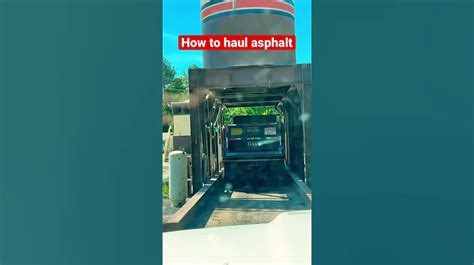How Long Does Asphalt Stay Hot In Truck
Ronan Farrow
Apr 05, 2025 · 2 min read

Table of Contents
How Long Does Asphalt Stay Hot in a Truck?
Asphalt, once heated to its workable temperature, retains its heat for a considerable period, particularly when contained within an insulated asphalt truck. The exact duration, however, depends on several crucial factors. This post will explore these influencing factors and offer a general understanding of asphalt's heat retention within a transport truck.
Factors Affecting Asphalt's Heat Retention
Several key factors influence how long asphalt remains hot within the confines of a truck:
1. Initial Temperature:
The starting temperature of the asphalt significantly impacts its cooling rate. Higher initial temperatures will, naturally, mean the asphalt stays hot for a longer duration. Asphalt is typically heated to temperatures between 250°F and 350°F (121°C and 177°C) depending on the type and intended application. The hotter it is initially, the more time it takes to cool.
2. Ambient Temperature:
The surrounding air temperature plays a crucial role. A hot, sunny day will cause the asphalt to cool down much slower than a cool, overcast day or a night-time transport. The greater the temperature difference between the asphalt and the surrounding environment, the faster the heat will dissipate.
3. Insulation of the Truck:
The quality of insulation in the asphalt truck is paramount. Well-insulated trucks, featuring specialized materials designed to retain heat, will drastically prolong the asphalt's hot temperature. Poorly insulated trucks will allow heat to escape much more rapidly.
4. Asphalt Type and Volume:
Different types of asphalt have varying heat capacities. Additionally, larger volumes of asphalt will generally retain heat longer than smaller quantities due to the greater overall mass. A larger mass has a greater heat capacity and requires more energy to cool down.
5. Agitation and Movement:
Constant agitation or movement of the asphalt within the truck can slightly increase the rate of cooling by exposing more surface area to the cooler environment. However, this effect is often minimal compared to the impact of other factors mentioned.
6. Weather Conditions:
Wind and precipitation can significantly accelerate the cooling process. Strong winds can increase heat loss through convection, while rain or snow can hasten cooling through conduction and evaporation.
Estimating the Timeframe
Giving a precise timeframe for how long asphalt stays hot is challenging due to the interplay of these variables. However, a well-insulated truck carrying a substantial volume of asphalt, initially heated to a high temperature, could maintain a workable temperature for several hours, even overnight under favorable conditions. Conversely, under less favorable conditions – a poorly insulated truck, low initial temperature, and a cold, windy environment – the asphalt might cool down significantly within a few hours.
Conclusion
Understanding how long asphalt stays hot within a truck is crucial for efficient paving operations. By carefully considering the factors outlined above, contractors can better manage their asphalt transportation and ensure the material remains at the correct temperature for optimal application. Always prioritize safety and follow established industry best practices.
Featured Posts
Also read the following articles
| Article Title | Date |
|---|---|
| How Long Does It Take A Hoverboard To Fully Charge | Apr 05, 2025 |
| How Long Does An Apicoectomy Take | Apr 05, 2025 |
| How Long Does A 4 Oz Fuel Canister Last | Apr 05, 2025 |
| How Long Does 1 Zyn Pouch Last | Apr 05, 2025 |
| How Long Does Filtered Water Last At Room Temperature | Apr 05, 2025 |
Latest Posts
-
How Long Is A Miniature Horse Pregnant
Apr 06, 2025
-
How Long Is A Middle School Lacrosse Game
Apr 06, 2025
-
How Long Is A Life Sentence In Nevada
Apr 06, 2025
-
How Long Is A Jingle
Apr 06, 2025
-
How Long Is A Highschool Lacrosse Game
Apr 06, 2025
Thank you for visiting our website which covers about How Long Does Asphalt Stay Hot In Truck . We hope the information provided has been useful to you. Feel free to contact us if you have any questions or need further assistance. See you next time and don't miss to bookmark.
